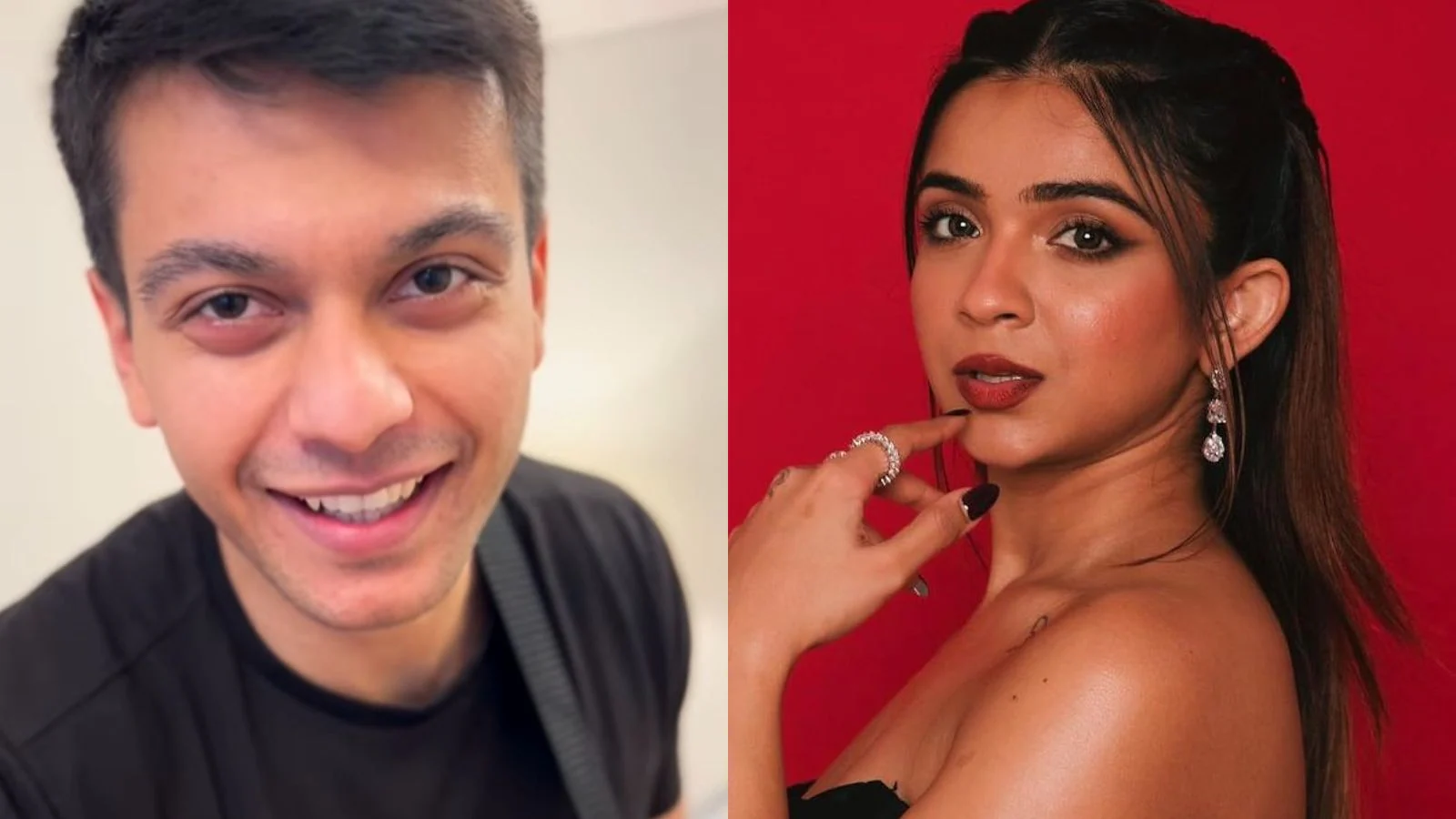
The recent controversy between Apoorva Mukhija—popularly known as “The Rebel Kid”—and her ex-boyfriend Utsav Dahiya has ignited a storm across social media. What began as a quiet breakup earlier this year has now escalated into a full-blown digital feud, complete with diss tracks, cryptic posts, and a wave of influencer fallout. The saga is not just a tale of heartbreak—it’s a cautionary reflection on how relationships unravel under the unforgiving spotlight of internet fame.
The Song That Sparked It All
On August 17, Utsav Dahiya, a 23-year-old investment banker and content creator, released a song titled “Cute Little Red Flag” on Instagram. The title itself was a pointed nod to a phrase Mukhija frequently uses in her viral storytime videos to describe toxic behavior in relationships. But this wasn’t just a clever play on words—the lyrics were laced with accusations of cheating, emotional manipulation, and public character assassination.
In the song, Dahiya raps about dodging a bullet and finding peace after the breakup. One line in particular—“Pucha maine ghatiya kyun bola mujhe duniya ke liye, kehti baby yeh toh sab dhandha hai mere liye”—struck a nerve with fans, who immediately linked it to a previous video where Mukhija jokingly referred to her exes as “ghatiya log” in a collaboration with entrepreneur Anupam Mittal. Though she never named Dahiya directly, the timing and context made the connection unmistakable.
The Instagram Note: Utsav’s Side of the Story
Alongside the song, Dahiya posted a lengthy caption that read more like a manifesto than a breakup note. He accused Mukhija of fabricating stories to gain sympathy and pushing false narratives for content. “Having a big following doesn’t give you the right to bully your way by rage-baiting your audience and unleashing them on others,” he wrote, warning that he would release “receipts” if the attacks continued.
Dahiya also revealed that he had reached out to Mukhija and her agency to address the allegations but was dismissed as a “nobody.” “You should be happy you got to date her,” he was allegedly told. His response: “Here’s a message from that nobody—I’m still here, still standing. That should tell you something. Your big numbers only matter on an app. There’s a real and much bigger world outside—beyond lies and drama.”
The Fallout: Influencer Exodus
The ripple effects of Dahiya’s post were immediate. Several influencers who had previously collaborated with Mukhija began distancing themselves. Sufi Motiwala, her co-star from the reality show The Traitors, posted an Instagram story stating, “I wanted to be close to Apoorva, not The Rebel Kid,” signaling a clear break in their friendship.
Anunay Sood, a travel blogger whom Mukhija often referred to as her “brother,” unfollowed her and liked Dahiya’s song. Jatin Parmar, another influencer, followed suit. The mass unfollowing and public endorsements of Dahiya’s track suggest that the controversy has fractured Mukhija’s inner circle, raising questions about loyalty, accountability, and the cost of online fame.
Apoorva’s Response: Cryptic and Calculated
While Dahiya’s approach was direct and confrontational, Mukhija chose a more cryptic route. She refrained from issuing any formal statement but posted a series of Instagram stories that seemed to acknowledge the drama. One read, “I love the tea as much as you all,” while another hinted at personal growth: “I learn a lesson only when I teach it to myself.”
Her silence has been interpreted in multiple ways—some see it as maturity, others as evasion. But in the world of social media, where every emoji and ellipsis is dissected for meaning, even silence speaks volumes.
A Relationship Built in Public, Broken in Public
Mukhija and Dahiya’s relationship was never just personal—it was performative. From shared poems and collaborative videos to mutual appearances in each other’s content, their romance was a curated experience for their followers. By late 2024, they were hailed as one of the most “relatable” creator couples, with Gen Z fans idolizing their chemistry and vulnerability.
But by early 2025, cracks began to show. Cryptic posts, absence from each other’s content, and subtle unfollows signaled trouble. The breakup, confirmed in January, was followed by indirect jabs and emotional confessions. What could have been a private healing process instead became a public autopsy of love.
The Creator Economy and Weaponized Intimacy
This controversy underscores a deeper issue within the creator economy: the monetization of intimacy. When relationships become part of a personal brand, their dissolution is not just emotional—it’s economic. Fans don’t just observe; they participate. They choose sides, create memes, and amplify narratives, often deepening the wounds of those involved.
Dahiya’s song and Mukhija’s storytime videos are not just expressions—they’re content. And in a digital world where visibility is currency, heartbreak becomes a commodity. The line between authenticity and performance blurs, leaving creators vulnerable to both adoration and backlash.
Lessons in Digital Boundaries
The Apoorva–Utsav saga is a cautionary tale for influencers and audiences alike. For creators, it’s a reminder that not every aspect of life needs to be content. For viewers, it’s a lesson in empathy and restraint. Just because someone shares their story doesn’t mean we’re entitled to dissect it.
In the age of parasocial relationships, where fans feel intimately connected to creators, boundaries are more important than ever. Love can flourish online, but healing—real healing—requires privacy, introspection, and time away from the screen.
What Comes Next?
As of now, neither party has indicated a desire to escalate the feud further. Dahiya’s song continues to gain traction, and Mukhija remains active on social media, albeit with a more subdued presence. Whether this controversy fades or evolves into something more remains to be seen.
But one thing is clear: in the world of digital storytelling, the lines between truth, art, and performance are increasingly difficult to draw. And when those lines blur, even a breakup can become a battleground.
In the end, “Cute Little Red Flag” may be more than just a song—it’s a symbol of how modern relationships, especially those lived online, can unravel in the most public and painful ways.


Leave a Reply